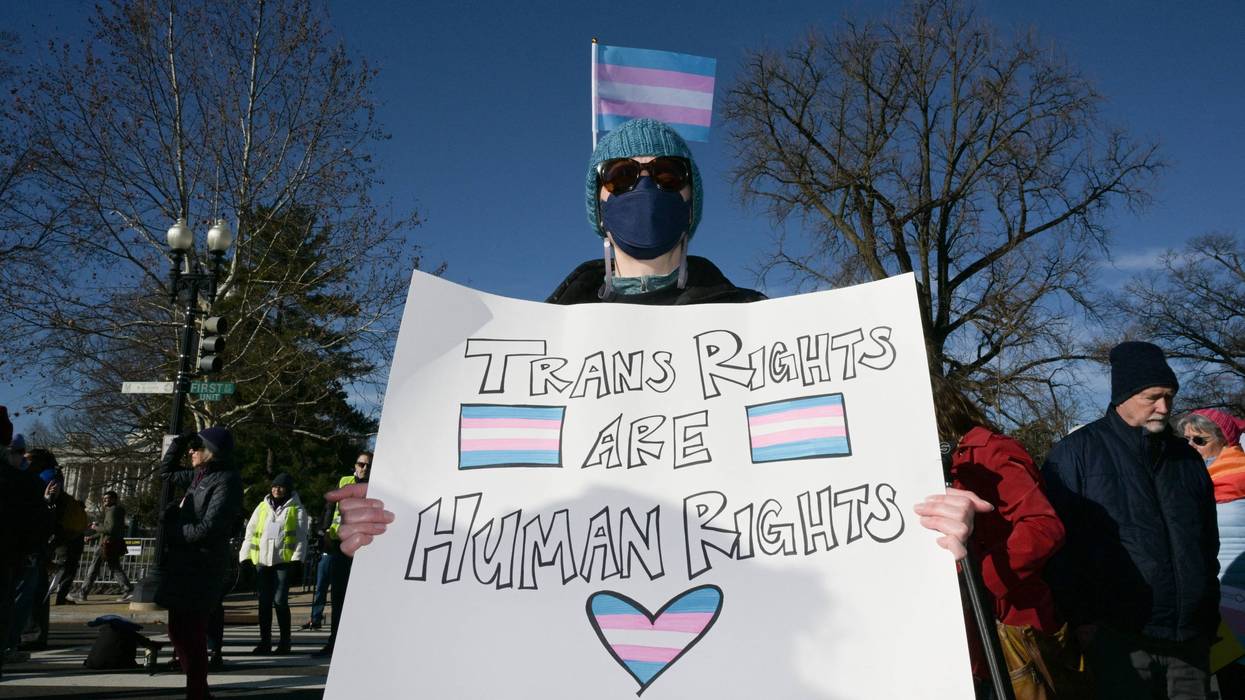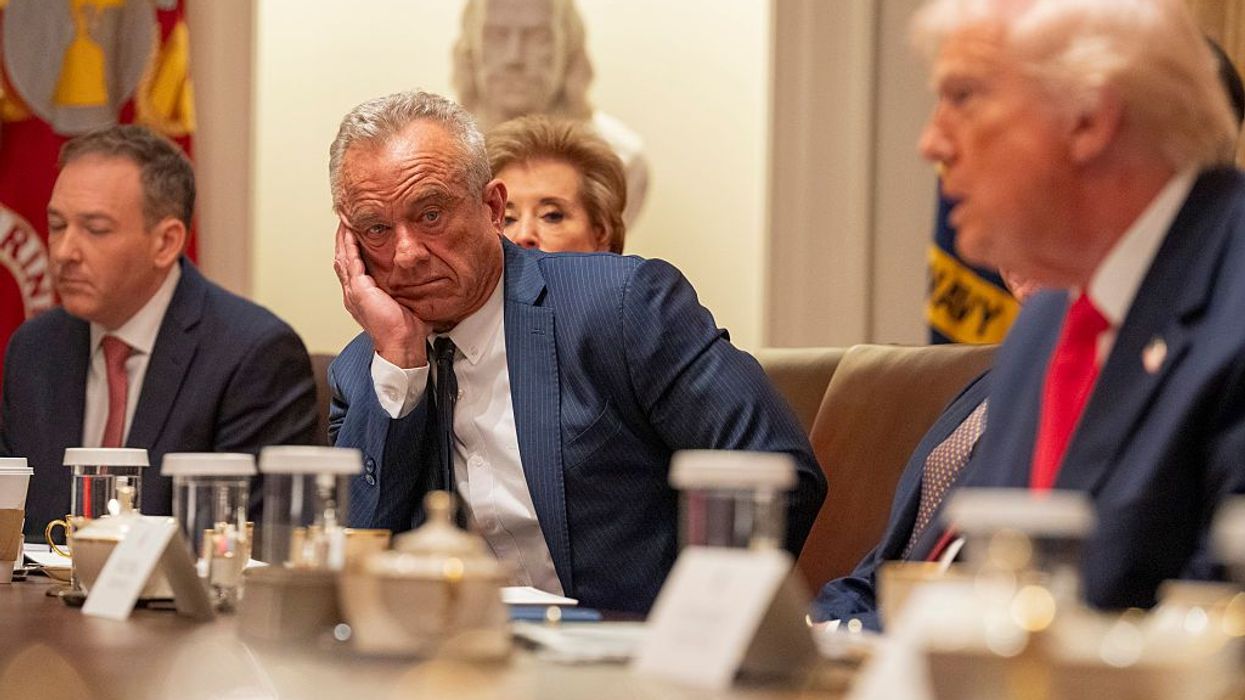Transgender Kansas Residents Sue Over State's Invalidation of Driver's Licenses
"SB 244 is a transparent attempt to deny transgender people autonomy over their own identities and push them out of public life altogether.”
Accusing Kansas Republican lawmakers of violating the state's Constitution and waging "a direct attack on the dignity and humanity of transgender Kansans" by passing a law that invalidates their driver's licenses, the ACLU on Friday filed a lawsuit on behalf of two transgender residents and called on a state judge to block the statute.
The organization took legal action a day after SB 244 went into effect, rendering the birth certificates and driver's licenses of about 1,700 Kansans invalid because they have been changed to reflect the gender identity of the people they were issued to, rather than their sex assigned at birth.
Transgender Kansans across the state received letters this week from the Kansas Department of Revenue instructing them to "surrender [their] current credential" and exchange it for one that matches their sex assigned at birth.
“Your current credential will be invalid immediately,’’ warns the letter, adding that driving without a valid license could result in penalties.
SB 244 also prohibits transgender Kansans from updating the gender marker on state-issued birth certificates and driver's licenses in the future, prohibits transgender people from using public restrooms that match their identity on government property, and allows anyone who suspects a transgender person is in violation of the law to sue the individual for damages of up to $1,000.
The bathroom provisions were added to SB 244 without a hearing or any public comment.
The state's Democratic governor, Laura Kelly, vetoed the legislation, but Republican legislators overrode her veto.
"A confident republic does not need to erase people to prove a point. It can hold together across deep differences without turning paperwork into a weapon."
Harper Seldin, a senior staff attorney for the ACLU's LGBTQ and HIV Rights Project, called the law "a cruel and craven threat to public safety all in the name of fostering fear, division, and paranoia."
“The invalidation of state-issued IDs threatens to out transgender people against their will every time they apply for a job, rent an apartment, or interact with police," said Seldin. "Taken as a whole, SB 244 is a transparent attempt to deny transgender people autonomy over their own identities and push them out of public life altogether.”
States including Texas, Florida, and Tennessee have laws requiring the gender marker on a person's driver's license to match their sex assigned at birth, but Kansas is the first state to invalidate the licenses of people who have changed the gender markers.
The law was passed as President Donald Trump and Republican lawmakers denounce what they view as radical "gender ideology," including science-backed findings that a person's gender can be fluid and that gender-affirming healthcare can reduce depression and suicidal ideation.
In 2025, the ACLU tracked more than 600 anti-LGBTQ laws and proposals in states. At least 74 were passed into law.
In the lawsuit filed in the District Court of Douglas County, two anonymous plaintiffs identified as Daniel Doe and Matthew Moe argue that SB 244 violates the Kansas Constitution's guarantees of personal autonomy, privacy, equality under the law, due process, and freedom of speech.
They argue that the law is discriminatory and violates equal protection laws because other Kansans are free to change their name or choose whether or not to list other aspects of their identity, such disclosing veteran status or a disability, on their licenses.
One critic calledlled SB 244 "humiliation with a state seal."
"This does not make anyone safer on the road. It just forces people to carry documents that lie about who they are, and then punishes them when those lies put them at risk at traffic stops, pharmacies, airports," the social media user said. "A confident republic does not need to erase people to prove a point. It can hold together across deep differences without turning paperwork into a weapon."
Heather St. Clair, a lawyer with Ballard Spahr, a law firm helping to represent the plaintiffs, said the law amounts to "state-sanctioned attack on transgender people aimed at silencing, dehumanizing, and alienating Kansans whose gender identity does not conform to the state Legislature’s preferences."
Ballard Spahr, she said, "is dedicated to protecting the constitutional rights jeopardized by this new law.”
The plaintiffs are seeking a temporary restraining order and a temporary injunction to block the law from entering into force while the case is being decided.
The advocacy group Southern Equality applauded the legal challenge.
"We are grateful to the ACLU for filing a lawsuit against this heinous law in defense of trans Kansans," said Southern Equality. "We join in solidarity with trans people everywhere: You belong in public spaces, and we will not stand by while your rights are stripped away."


